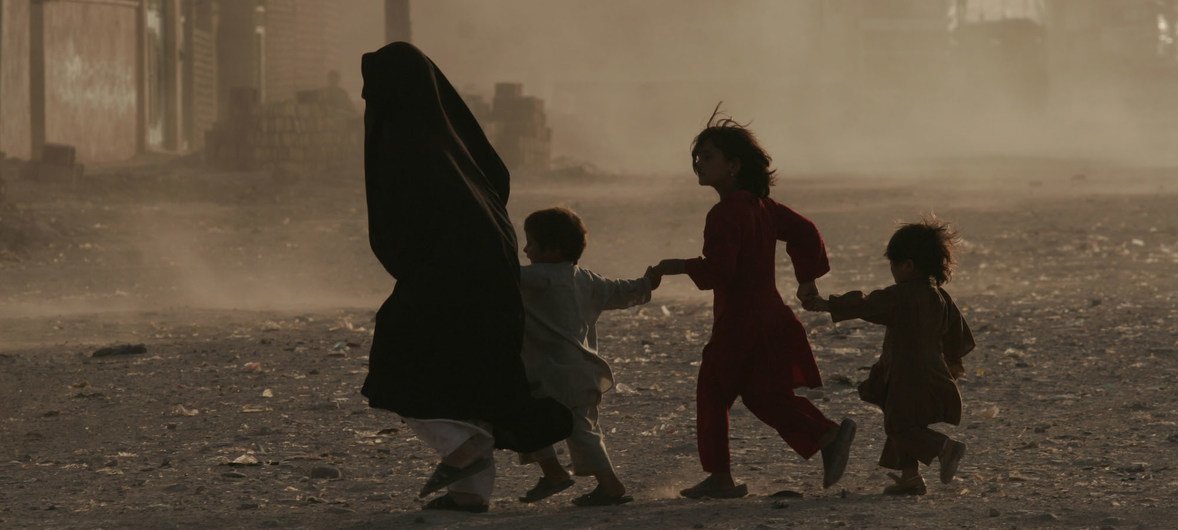In a resolute plea before the Security Council on March 6, Roza Otunbayeva, the United Nations' special envoy for Afghanistan, reiterated her urgent call for the Taliban to reverse the multitude of restrictions imposed on the lives of Afghan women and girls, citing blatant violations of their fundamental human rights, United Nations reported. She cautioned that the longer these restrictions persist, the more profound the damage inflicted upon the fabric of Afghan society.

Otunbayeva, who serves as the Special Representative of the Secretary-General, highlighted the recent arbitrary arrests of Afghan women for purported violations of Islamic dress codes. She underscored the chilling effect this repression has had on the broader female populace, many of whom now fear even basic movement in public spaces.
"The denial of women's and girls' access to education and employment, coupled with their exclusion from various facets of public life, has inflicted immense harm on their mental and physical well-being, as well as their livelihoods," Otunbayeva emphasized.
Otunbayeva also referenced the second meeting of national and regional special envoys for Afghanistan, convened in Doha on February 18 and 19. Despite the Taliban's absence, she relayed that they welcomed the Secretary-General's statement emphasizing the necessity for deeper consultations. The Taliban representatives clarified that their non-participation wasn't a refusal to engage with the international community but rather a reflection of their concerns about not being treated as equal stakeholders in discussions about Afghanistan.
Expressing grave concerns over recent negative trends observed in Afghanistan, Otunbayeva, who also heads the UN Assistance Mission in Afghanistan (UNAMA), highlighted the Mission's extensive monitoring and advocacy efforts, particularly on human rights issues. She condemned the repression of women and girls, public displays of violence, including corporal and capital punishment, as well as the lack of inclusive governance and the marginalization of minority groups.
"While there has been a semblance of improved day-to-day security for millions since the Taliban's takeover, this has come at an enormous cost," Otunbayeva asserted.
Characterizing Afghanistan as a persistent challenge for the international community, Otunbayeva emphasized the nation's history of instability and terrorism, along with its significant contribution to global opium production. She also noted the millions of refugees who have sought sanctuary in neighboring countries and beyond.
Acknowledging the relative stability achieved under Taliban rule and their efforts to curb opium cultivation and combat groups like Daesh (ISIS), Otunbayeva cautioned that without addressing the issues she raised, these achievements would not ensure long-term sustainability.
Rights and Well-Being of Afghan Women and Girls
UN experts have expressed grave concern over the regression of women's and girls' rights in Afghanistan, comparing the current situation to that of the pre-2002 era under Taliban rule. In a statement issued by OHCHR, the experts highlighted the setbacks in women's rights since the Taliban regained control in 2021.
“In 2002, after years of being denied their rights under the previous Taliban regime, Afghan women celebrated International Women’s Day full of hope. The day was observed in Afghanistan and at UN Headquarters with the theme ‘Afghan women today: Realities and Opportunities’ and commitments were made to support our Afghan sisters rebuild their lives and be full partners in the post-conflict reconstruction of the country. On that day the international community said that the plight of Afghan women had been “an affront to all standards of dignity, equality and humanity.” It stressed that world support for reasserting their rights should go beyond expressions of solidarity.”
They emphasized that Afghan women and girls are being denied fundamental rights and freedoms, including access to education, work, healthcare, freedom of movement, and freedom from discrimination. The experts noted specific restrictions imposed, such as the ban on girls attending secondary school, women from tertiary education, and their exclusion from public life and employment opportunities.
The experts frequently urged the Taliban to lift these restrictions, particularly concerning education and employment, ahead of the upcoming school year. They called on the de facto authorities to fulfill their obligations under international human rights treaties, including the Convention on the Elimination of All Forms of Discrimination Against Women (CEDAW), to which Afghanistan is a State party.
Furthermore, the experts stressed the need for robust support from the international community to uphold the rights of Afghan women and girls. They urged concrete actions to prioritize women's rights in engagements with the Taliban, demand the reversal of oppressive policies, facilitate women's participation in decision-making processes, and increase support for their employment, aid, and healthcare.
Follow Daryo's official Instagram and Twitter pages to keep current on world news.
Comments (0)